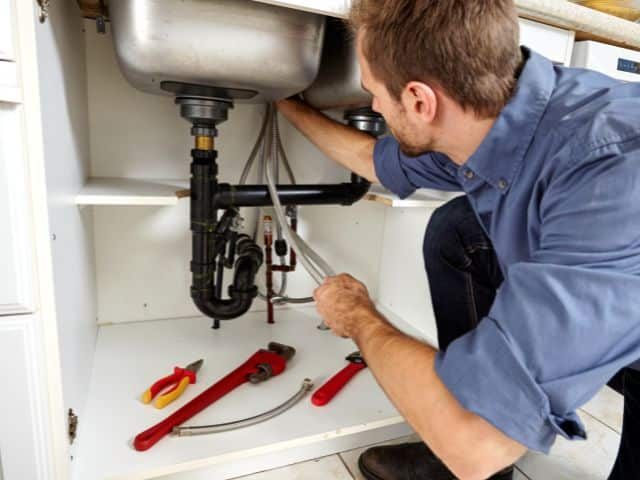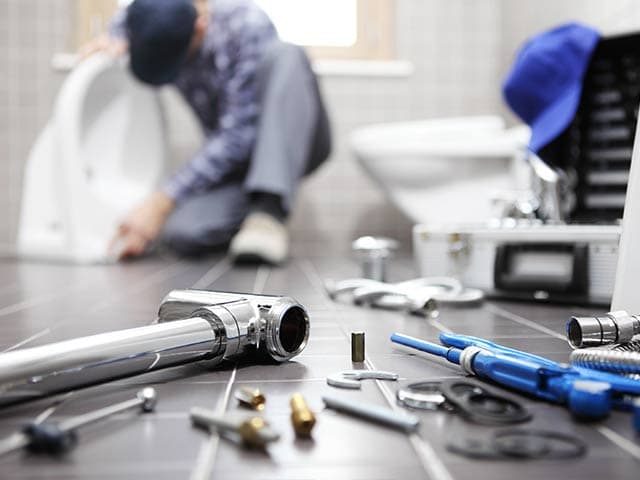Plumbing issues can be one of the most frustrating and expensive home repairs. A minor leak or clog, if ignored, can escalate into a significant problem, leading to extensive water damage and costly repairs. However, with proper maintenance and proactive steps, you can prevent most plumbing disasters. Here are expert tips on how to avoid costly plumbing repairs and keep your home’s plumbing system in top shape.
1. Regular Inspections and Maintenance
One of the best ways to prevent expensive plumbing repairs is to conduct regular inspections. Check for leaks under sinks, around toilets, and near appliances like dishwashers and washing machines. Look for signs of moisture, water stains, or mildew, which can indicate hidden leaks. Scheduling an annual inspection with a professional plumber or the best plumbing company can also help identify potential issues before they become serious.
2. Be Mindful of What Goes Down the Drain
Clogged drains are among the most common plumbing problems, and they are often caused by flushing or washing down inappropriate materials. To prevent clogs:
- Kitchen Sink: Avoid pouring grease, fats, and food scraps down the drain. Use a strainer to catch debris.
- Bathroom Sink and Shower: Install a drain cover to catch hair and soap scum, which can build up over time.
- Toilet: Only flush toilet paper. Avoid flushing wipes, feminine hygiene products, paper towels, or anything that can cause blockages.
3. Protect Your Pipes from Freezing
During cold months, frozen pipes can burst, leading to significant water damage. To prevent this:
- Insulate exposed pipes in basements, attics, and crawl spaces.
- Keep cabinet doors open to allow warm air to circulate around pipes.
- Let faucets drip slightly during extremely cold weather to prevent freezing.
- Disconnect and drain outdoor hoses before winter.
4. Address Leaks Promptly
A small leak might not seem like a big deal, but even minor drips can lead to significant problems. Over time, leaks can cause mold growth, structural damage, and skyrocketing water bills. If you notice a dripping faucet or a running toilet, address it immediately to prevent further issues.
5. Know Where Your Main Shut-Off Valve Is
In the event of a plumbing emergency, knowing how to quickly shut off your home’s water supply can prevent extensive damage. Locate your main water shut-off valve and ensure that everyone in the household knows where it is and how to turn it off.
6. Use Water Softeners If Necessary
Hard water contains high levels of minerals like calcium and magnesium, which can build up in pipes, causing blockages and reducing water pressure. Over time, this buildup can damage plumbing fixtures and appliances. Installing a water softener can help prolong the life of your plumbing system.

7. Maintain Your Water Heater
Water heaters require regular maintenance to function efficiently. Drain and flush the tank annually to remove sediment buildup, which can cause inefficiencies and reduce its lifespan. Also, check the anode rod periodically and replace it if it is corroded.
8. Upgrade Old Plumbing Fixtures and Pipes
If your home has old pipes, they may be more prone to corrosion and leaks. Consider upgrading to newer materials like PEX or copper pipes, which are more durable. Replacing outdated plumbing fixtures with modern, water-efficient options can also help prevent problems while reducing water usage.
9. Don’t Ignore Warning Signs
Many plumbing issues start with small warning signs that homeowners often overlook. Pay attention to:
- Slow-draining sinks or tubs
- Gurgling sounds from drains
- Low water pressure
- Unpleasant odors from drains
- Water stains on walls or ceilings
Addressing these issues early can save you from expensive repairs later.
10. Hire a Professional When Needed
While DIY plumbing fixes can be helpful for minor issues, more complex problems require the expertise of a professional plumber. Attempting major repairs without the proper knowledge can lead to even costlier damages. If you’re unsure, it’s best to call a licensed plumber to diagnose and fix the issue correctly.
Final Thoughts
Preventing costly plumbing repairs comes down to regular maintenance, being mindful of what goes down your drains, and addressing issues as soon as they arise. By following these expert tips, you can keep your home’s plumbing system in excellent condition and avoid expensive emergencies. Investing a little time and effort in preventative measures will save you money and headaches in the long run.





